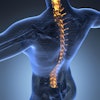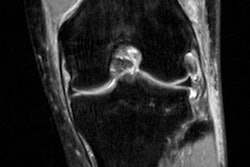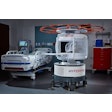
Sunday, November 26 | 11:25 a.m.-11:35 a.m. | SSA14-05 | Room S406A
How does the diagnostic performance of a five-minute knee MRI protocol compare with that of a standard knee MRI protocol? Dr. Erin Alaia, a musculoskeletal radiologist at NYU Langone Health in New York City, will share the answer in this presentation.For their study, researchers compared the two protocols in 100 3-tesla MRI scans of 100 patients and 50 1.5-tesla MRI exams of 46 patients. The five-minute protocol included five multiplanar 2D fast spin-echo (FSE) sequences using parallel imaging, while the conventional protocol consisted of five standard sequences. Four musculoskeletal radiologists reviewed the results.
The interreader agreement with fast MRI was very similar to the interreader agreement with standard MRI, with "no excess disagreement," the researchers reported. In addition, the frequency of major findings reported on fast versus standard MRI did not differ significantly.
However, standard MRI was more likely than the five-minute scan to detect anterior cruciate ligament (ACL) tears and cartilage defects. Fast MRI was slightly less sensitive for cartilage defects but slightly more specific than standard MRI.
The five-minute knee MRI "would be helpful to improve efficiency and patient throughput when MRI availability is limited and to increase patient comfort and exam tolerability in patients with claustrophobia and pain," Alaia and colleagues concluded in their abstract.
This paper received a Roadie 2017 award for the most popular abstract by page views in this Road to RSNA section.




















